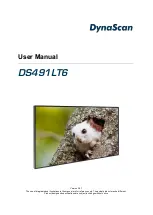
4-13
Trunk Monitor or Service Observing
This feature allows the user who barged in to retain the trunk call after the barged-in on station has
hung up.
Executive/Secretary Pooling
Each keyset may be defined as an executive (BOSS) or a secretary (SECR) keyset in
system programming. Each ‘executive’ can have up to four ‘secretaries’, and each ‘secretary’
can have up to four ‘executives’, assigned to it. These arrangements are known as execu-
tive/secretary pools. There can be multiple pools in a system. When an executive is in DND
mode, all calls to the executive ring the first secretary assigned to that executive; if that sec-
retary is busy, the call hunts to the next available secretary assigned. If the secretary needs
to communicate with the executive while the latter is in DND mode, pressing the correspond-
ing executive key on the secretary’s keyset results in an Auto Answer internal call being
made to the executive (providing the executive is free). The OfficeServ 100 software has a
system-wide option to allow the stations to ring rather than auto announce the executive sec-
retary calls. A station can only be the executive of one secretary pool. In addition, a station
cannot be in more than one pool.
See also
Boss/Secretary Service
for additional features available for executive/secretary
working.
External Music Interfaces
The system provides up to two inputs for connecting to customer-provided external music
sources. The Basic KSU provides one input on the base board (selectable internal/external)
and the optional MISC card provides another. Music sources can be used to provide back-
ground music, or any of the varied Music-On-Hold (MOH) functions.
External Page Interfaces
The system base board provides one external page output and the optional MISC card pro-
vides an additional external page output and three relays which can be used for page zone
control. Multiple relays may be assigned to each zone.
Flash Key Operation
While a user is on an outside line, pressing the FLASH key will flash the central office or
PBX. This is used for custom calling features on C.O. lines or in conjunction with CEN-
TREX/PBX operation. System programming allows individual flash times for C.O. and PBX
lines. When C.O. or PBX flash is not required, setting the timers for two seconds releases the
existing call and returns dial tone to make a new call.
Flexible Numbering
System programming allows stations to have 2-, 3- or 4-digit extension numbers beginning
with the digit 2 or 3. By default, extension numbers begin with 201. Station group numbers
can be three or four digits beginning with the digit 5. Other numbering plans can be used.
Using digits other than ‘2’, ‘3’ or ‘5’ will require the installer to change other feature access
codes in the system default numbering plan. Take this into account when referring to Sam-
sung Keyset User Guides as these all assume that the default numbering plan is being used.
















































